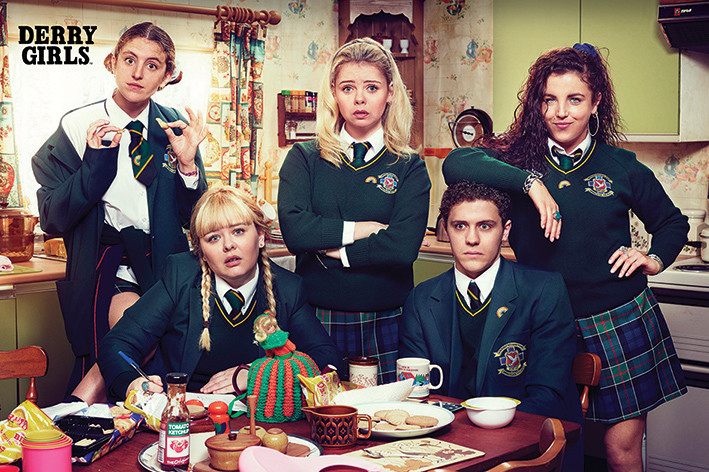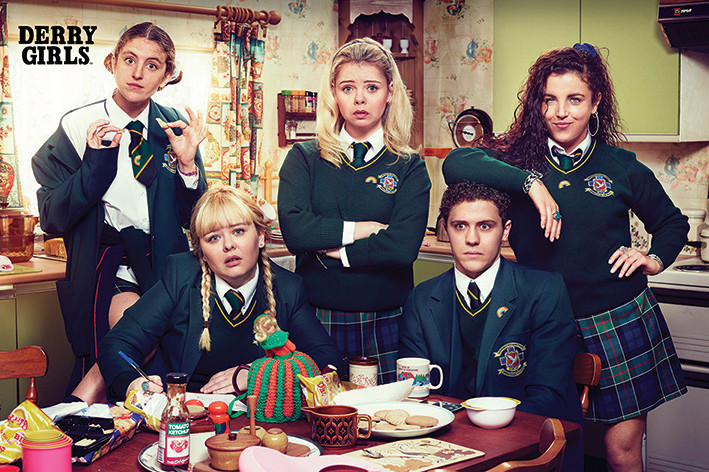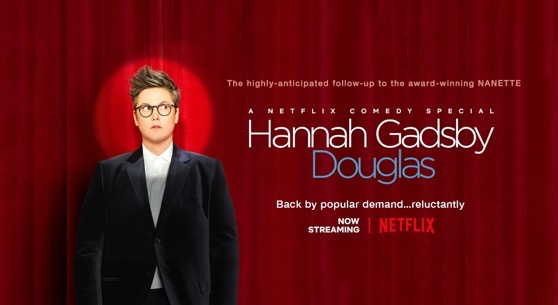If you haven’t yet watched Derry Girls you have to – This trailer to the first season shows the brilliance of creator Lisa McGee, who wrote ALL 3 seasons worth of episodes herself (much like Susan Harris wrote many of her early season shows herself to cement the tone and style).
I don’t always agree with the idea of no writers room – writers rooms have a deeply important purpose – but in this case, her story was SOOOO distinctly of Derry, not even merely of Ireland but completely from her own home town and her own time period as a teen in that town, that I understand. In essence, she wrote an 20 hour movie broken up into 3 seasons of 8 half hour episodes apiece.
So like a loooong film, what the trailer can’t yet show is the wonderful arcs of each of these young women who by the Season 3 series finale (not a spoiler alert since I’m not telling you what they decide) must decide how to vote on the Good Friday Agreement.
In 2022 the New Yorker had this great interview with McGee:
The house where Lisa McGee grew up, in Derry, in Northern Ireland, sits on the bank of the River Foyle, near a largely Catholic neighborhood known as the Bogside. In 1969, the Bogside was the site of a three-day conflict. Residents hurled projectiles and petrol bombs; they were met with tear gas and batons. The violence spread to other cities and towns, and ultimately resulted in hundreds of injuries and a number of deaths. British troops were called in to Derry—the beginning of a long-term military operation. The conflict, known as the Battle of the Bogside, marked what many would call the start of the Troubles, which dominated Northern Irish politics for roughly three decades. In 1972, violence flared in the Bogside again. More than a dozen civilians were killed by soldiers in a massacre known as Bloody Sunday.
Tidbits with great points for writers (aspiring and published/produced because writers are always learning) include:
Write what you’re afraid of writing: “ “I had said my whole life, ‘I’ll never write about the Troubles,’ ” she told me. “Everything I saw about the Troubles was either the news, or something quite shit that was going on in my actual life.” In films about the period, she didn’t recognize the people. “There were never any jokes. I don’t know any Northern Irish person that isn’t funny,” she said. Lewin, who had been listening to McGee tell stories about her childhood for years, persuaded her to try. “They’re so joyful,” she said.”
AND
Create writerly habits: “She often carries a notebook. “If somebody says something funny, she’ll write it down,” Mallon said. “She might even ask you again, ‘What was that? What did you say?’ She wants to get it right, word for word.” Mallon told me that McGee once heard his father say something about his car—“It stinks of fish in here!”—and borrowed the line years later in “Derry Girls.”
While the show is comical to anyone who has any experience in a Catholic school –that background isn’t required. We all understand coming-of-age and coming-to-love-our-heritage and teenagers and parents dealing with each other.
But on top of all that viewers outside of Ireland learn about the history of another country and its political turmoil and hear some great discussions about peace and how we’re all a lot more similar than we are different. And that’s what art can do.



